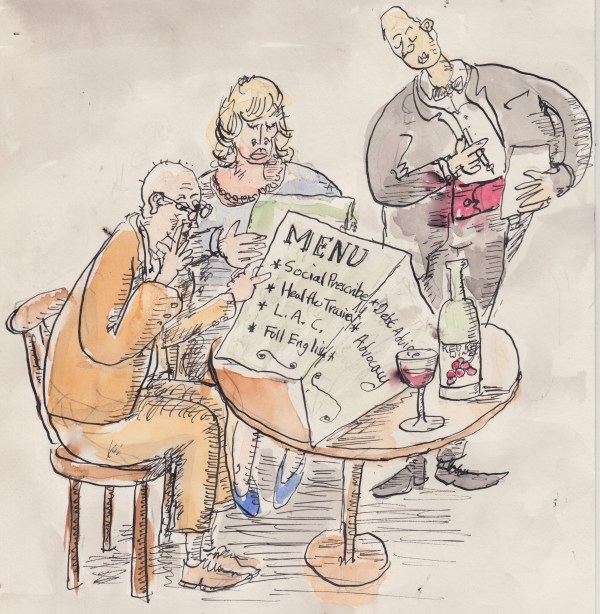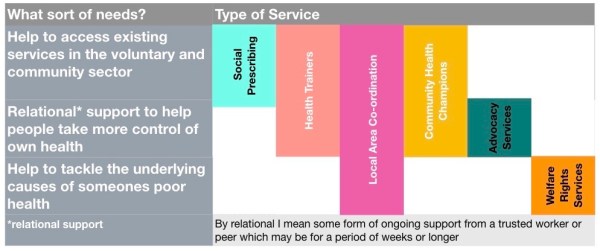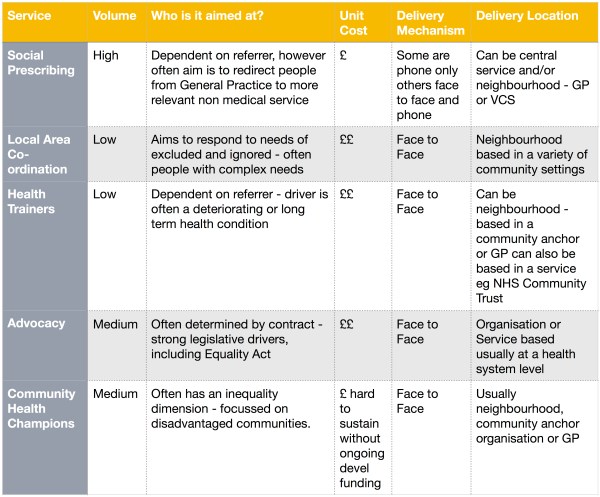Access to communities: tailoring services to meet different health needs

Following my last blog on the growing interest that local health and care systems have in services that connect people with the voluntary and community sector in order to improve their health and wellbeing, I have tried to order some of my ideas into the following tables.
Please bear in mind that these are just some of my thoughts on this – I am not claiming that it is a complete picture or a completely correct one!
One of the problems with putting tables like this together is that I can justifiably be accused of having oversimplified matters – please see the tables as providing a frame for discussion not an exact representation of “what is”.
Please respond with comments suggesting how I could improve the information below and I will try to amend.
Definitions
- Social prescribing enables GPs, nurses and other primary care professionals to refer people to a range of local, non-clinical services.
- Local Area Coordination is a long term, integrated evidence based approach to supporting people with disabilities, mental health needs, older people and their families/carers
- Health Trainers support people to adopt healthier lifestyles through empowering them and helping them to set a personal health plan (PHP). This outlines the individual’s goals for a healthier lifestyle and a plan to achieve these goals.
- Community health champions are people who, with training and support, voluntarily bring their ability to relate to people and their own life experience to transform health and wellbeing in their communities.
- Advocacy means getting support from another person to help you express your views and wishes, and to help make sure your voice is heard. Someone who helps you in this way is called your advocate.
- Welfare rights means the rights of people to be aware of and receive their maximum entitlement to state welfare benefits, and to be treated reasonably well by the welfare system
- Community anchors are independent community-led organisations.
They are multi-purpose and provide holistic solutions to local problems and challenges. They are there for the long run, not the quick fix.
Table One – Different services to respond to different needs, different social conditions and differences in power.

Table Two – Description of some of the characteristics of the above services

What do you think?
Hi Mark
I am currently involved in a programme looking at mapping community resilience at lower super output levels so that we can tailor different approaches to meet local needs. I would be interested in your views about the relationship between local need and focused social and health input. Contact me if you would like to discuss
Stuart
Hi Stuart – good to hear from you – I’ll get in touch when I return from my hols – Mark